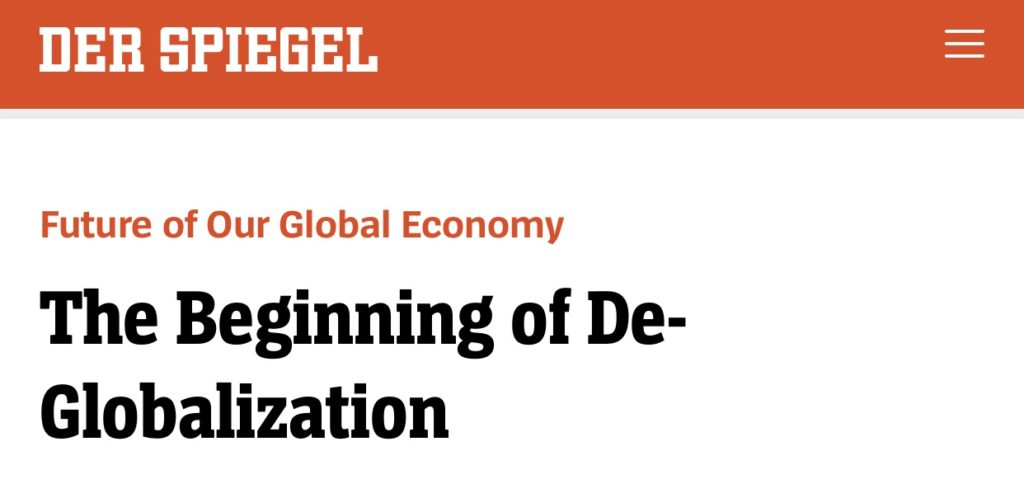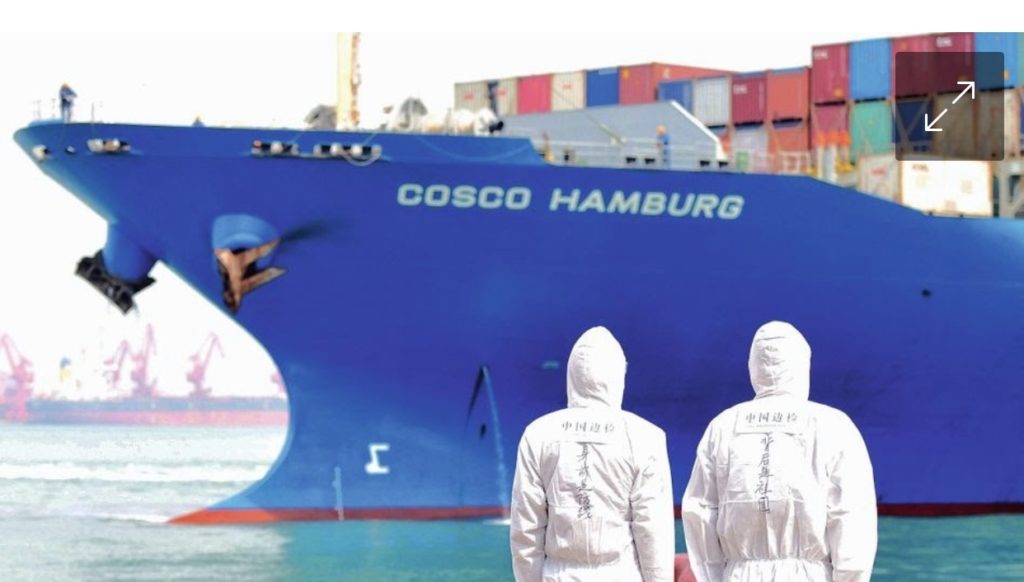The Beginning of De-Globalization? The Future of Our Global Economy
Der Spiegel had the other day an interesting article arguing that the Covid-19 / corona virus crises could be the beginning of de-globalization.

Many have said the same but Der Spiegel does the job of taking this to the next level with a convincing argument.
I am personally not so sure. Yes, we will see a move from Just-in-Time to Just-in-Case. Companies will increase their compliance, predictability and supply chain certainty with additiona back-up systems including alternative routes planning, additional warehousing, back-up production/delivery models and stockpiling near markets. However at the same time, the force of globalization is emmense and its main drivers are still valid post-corona. Especially since trade recovery will be a main feature of all post-corona financial recovery strategies. I think we will see a focus on using the main and most predictable trade routes even more, creating global supertrade highways. So we will have conflicting megatrends for the near future and then we will see the globalization effects, atbleadt in telations to international trade, making progress yet again.
Here is a text from the DS article.
”The corona crisis is changing the global economy. Production security is growing more important than efficiency. Here is what that might look like.

Corona is here, and it won’t be leaving anytime soon. Which means that hopes for a return to normal are likely to be in vain. Furthermore, everybody has become hyper-aware of the dangers of infection and it is a fear that will stay with us.
Social distancing will continue to guide our personal interactions, restaurants will leave every second table empty, open-plan offices are being divided up and only two, maybe three, people will get into the elevator at a time, and each will be facing a different corner. Such is our new reality, and such are the changes coming to the world of work. More than that, companies are trying to make themselves more resistant to sudden economic shocks and resilience is the new guiding principle.
Industrial machine producers, of the kind that make a huge contribution to the German economy, have begun shifting priorities from making the supply chain as cheap as possible to making it as secure as possible. Wholesalers have turned to video chats when making large sales rather than flying halfway around the world as they used to. Airlines, meanwhile, find themselves fighting for survival and many have had to take public-sector bailouts.
Indeed, in the foreseeable future — for months, or perhaps even years — the state will be the savior of last resort for many companies. It alone has sufficient means at its disposal to battle the pandemic, minimize its economic consequences and prop up entire industries. And not only is the state in Germany providing emergency aid, cheap loans and economic stimulus, it is also ensuring that the minimum wage is significantly increased for care workers in retirement homes while top executives at companies like Daimler and Lufthansa are voluntarily forgoing their bonuses.
Such is the new world at the beginning of the 2020s. Its outlines are already taking shape. It will be a world in which security will play a greater role, as will central governments. But will it be more just?”. -//-
You can read the article by clicking here: The Beginning of De-Globalization
Source: Der Spiegel
You must be logged in to post a comment.